The worst part about the Sundance Film Festival—besides schlepping through snow and almost passing out due to Park City’s insane altitude—is making sense of the hundreds of indie films premiering. Every single project hopes the festival will be a catalyst for commercial and critical success à la Napoleon Dynamite, Little Miss Sunshine or Get Out, which all premiered at the fest in 2004, 2006 and 2017, respectively. But more often than not, it’s just the first stop in a long line of festival screenings that end with the movie being buried on an obscure streaming platform—or worse—living on a dusty hard drive at the bottom of someone’s closet. This year will be no different. There are a number of films, however, that have risen above the fray to become some of the more buzzy titles at Sundance. I’ve selected eight to review—because “buzzy” doesn’t always mean “good,” and a lot of reviews written by cis white men for trade publications ain’t gonna give you that “ooh-ah-ah sensation” (to quote Drag Race queen Monique Heart). Here are my very-much-informed takes on the fest’s supposed best.
Zola
Perhaps the most anticipated film of the fest, Zola is surely the first to start as a series of 150 tweets from a stripper who found herself duped by another dancer and her pimp while on a road trip to Florida. From the very first line, “You wanna hear a story about why me and this bitch here fell out? It’s kind of long but full of suspense,” director Janizca Bravo weaves a fabulously frantic tale of debauchery worthy of the film’s social media beginnings. Bravo co-wrote the film with Broadway darling Jeremy O. Harris (Slave Play) based on tweets from A’Ziah King, a.k.a. @zolarmoon. Led by Taylour Paige’s enthralling and mesmerizing performance, perfectly complemented by Riley Keough, Nicholas Braun and Colman Domingo, the film is a roller-coaster ride of too-good-to-be-true happenings that keep you on the edge of your seat, laughing out loud. With this film, slated for theatrical release this summer, Bravo cements her reputation as a filmmaker to watch.
The 40-Year-Old Version
Radha Blank is the writer, director and star of “The 40-Year-Old Version” premiering at Sundance. Credit: Courtesy Jeong Park/Sundance Institute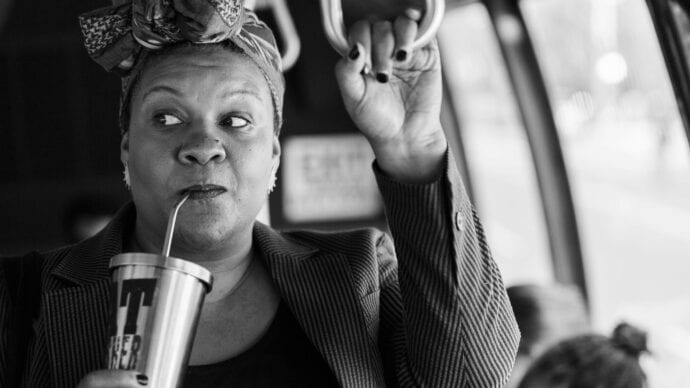
As critics, we love to say a film is a “love letter” to something. But there’s no better way to describe the masterpiece that is The 40-Year-Old Version. It’s a love letter to hip-hop penned by a Black woman who hasn’t always felt loved by the genre and culture. Written, directed by and starring Radha Blank, who plays a fictionalized version of herself, the film follows a playwright forced to navigate the old, white gatekeepers of theatre in order to stage her next production. In the meantime, she teaches at a local high school to pay the rent. After a tumultuous day at work, a rapping alter-ego of hers named RadhaMUSprime awakens, inspiring Radha to drop a mixtape. Blank’s film debut, after writing for television series including She’s Gotta Have It and Empire, The 40-Year-Old Version is an instantly canonical comedy with a level of social commentary that will make it forever relevant. As an actress, Blank jumps off the screen with relatability, and her chemistry with co-star Oswin Benjamin is palpable.
Save Yourselves!
Sunita Mani and John Reynolds star in “Save Yourselves!” Credit: Courtesy Matt Clegg/Sundance Institute 
What would you do if you were stuck in the middle of the woods for a week with your partner, with no WiFi or phones at the precise time aliens attacked Earth? Writer-directors Alex Huston Fischer and Eleanor Wilson take this premise and run with it in Save Yourselves!, an intriguing sci-fi comedy led by the engaging performances of John Reynolds and Sunita Mani. Admittedly, I watched it through my gel-manicured fingers—thrillers, even of the upbeat variety, aren’t my thing. But perhaps that’s what makes this flick a decent time for those who can stomach the anxiety it induces. I can’t say it’s great, but I didn’t hate it.
Crip Camp
An archival still from the doc “Crip Camp.” Credit: Courtesy Steven Honigsbaum/Sundance Institute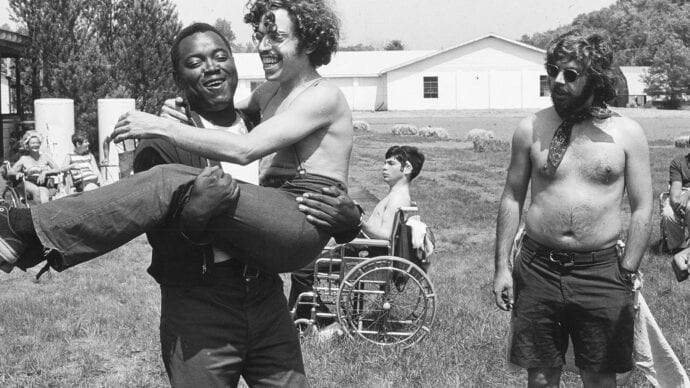
I often judge documentaries that are meant to be endearing and emotional by how many times I cry. I’m not someone who cries easily, so if you are able to get a tear to run down my face, you’ve done something right. If I cry more than two times, you’re cookin’ with Crisco! Watching Crip Camp, a doc about an unorthodox summer camp in the early 1970s for teens with disabilities that birthed a generation of activists, I cried four times. Co-directed by Nicole Newnham and former camper James Lebrecht, and executive produced by former U.S. President and First Lady Barack and Michelle Obama, Crip Camp draws on a massive store of archival footage and new interviews with former campers to show how they bonded together, migrated west to Berkeley, California and advocated for—and won—improved accessibility for millions with the passage of the Americans with Disabilities Act. It’s a powerful, moving tribute on the 30th anniversary of the Act that captures the enduring spirit of people who won in spite of the odds against them. For anyone interested in doing archival documentary work, this film is the new prototype.
Bad Hair
Yaani King Mondschein, Elle Lorraine and Lena Waithe star in the feature "Bad Hair.” Credit: Courtesy Sundance Institute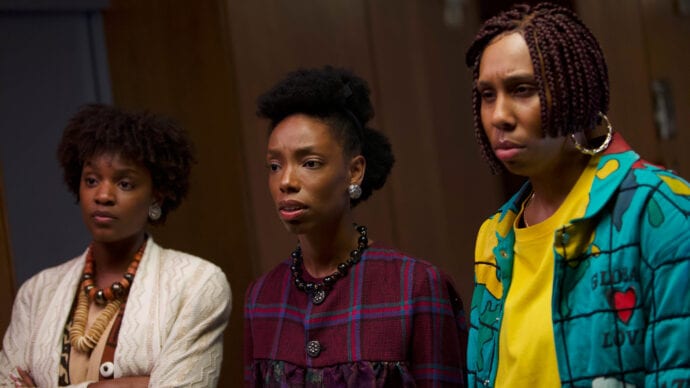
Justin Simien’s latest film, about a woman whose new weave is both possessed and possessive, has the makings of something truly inspired. The horror-comedy from the creator of Dear White People, however, doesn’t quite stick its landing. The first half of the too-long film is not well-paced, and some of the narrative cues are heavy-handed. That said, the top-notch acting makes up for where the script falls off, and audiences are introduced to Elle Lorraine (Trina from HBO’s Insecure), the new leading woman everyone needs in their productions. Opposite more senior actors Vanessa Williams, James Van Der Beek, Laverne Cox and a hilarious Lena Waithe, Lorraine more than holds her own with comedic timing and aplomb with dramatic fare far beyond her years. Ultimately, the late ’80s-set film will continue the conversation about the Black community’s relationship to our hair, building on the commentary found in Spike Lee’s School Daze, Chris Rock’s doc Good Hair and other films.
Disclosure: Trans Lives on Screen
Laverne Cox, executive producer of “Disclosure: Trans Lives on Screen.” Credit: Courtesy Disclosure Films
One of the greatest tragedies of being a young person of trans experience is that we don’t often know the history of our trans-cestors. Because of a world that is still working to erase us and our contributions—or, at minimum, force us to blend in with the cis majority—we lack an understanding of our lineage and the power we naturally possess. Disclosure, a doc chronicling the history of trans representation in film and television since the beginning of moving images, helps to course correct. Executive produced by Laverne Cox and directed by Sam Feder, it’s a stirring analysis of how Hollywood has played a major role in the disparagement of trans people, featuring all-trans interview subjects, including actors Jen Richards, Marquise Vilsón and Angelica Ross and activists Zeke Smith, Tiq Milan and Nick Adams, among others. It’s necessary viewing, for trans and cis folk alike—and not just because I’m in it, too!
Miss Juneteenth
Nicole Beharie and Alexis Chikaeze star in “Miss Juneteenth.” Credit: Courtesy Rambo Elliott/Sundance Institute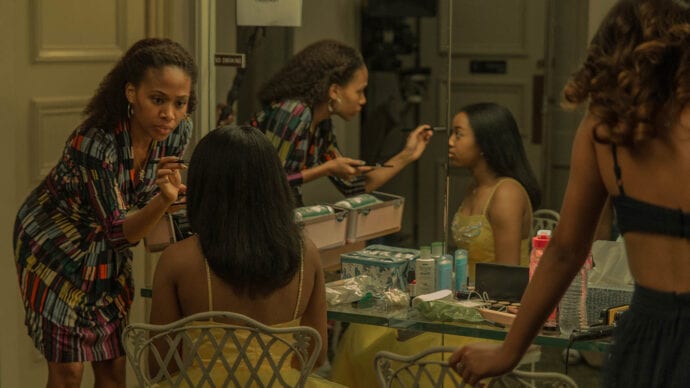
About a former beauty queen and single mom preparing her rebellious daughter to compete in the “Miss Juneteenth” pageant, Channing Godfrey Peoples’ drama is a fresh take on the struggling-single-mother trope too many Black dramas are based on. A Southern-fried look into the drive of a woman who just wants more for her daughter than she has, Nicole Beharie is a revelation, breathing a life and passion into Godfrey Peoples’ history-rich script. Opposite a convincing performance by Insecure’s Kendrick Sampson, she’s the driving force of this intimate portrait of Black motherhood.
Boys State
Steven Garza appears in the doc “Boys State.” Credit: Courtesy Thorsten Thielow/Sundance Institute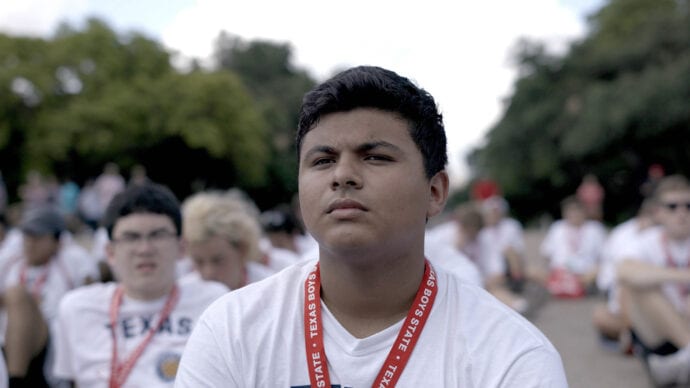
Sponsored by the American Legion, Boys State is a weeklong summer program for high school teens in which attendees become part of the operation of fictional local, county and state governments. (American Legion Auxiliary sponsors the separate but similar Girls State.) There’s a convening in every state. For their doc Boys State, Amanda McBaine and Jesse Moss embedded with thousands of 17-year-old boys at Texas’ Boys State to create this revealing documentary about the next generation of potential political leaders. Following a number of youth as they stage campaigns for offices including Party Chair, Attorney General and Governor, the film gives us a look into what we have taught youth about electoral politics—the good, the bad and the ugly. As someone who attended Boys State in South Carolina when I was in high school, this film is at once an accurately enraging revelation that makes me fearful for the future of our democracy, and an inspiringly galvanizing effort that unearths the glimmers of hope to which we can cling.
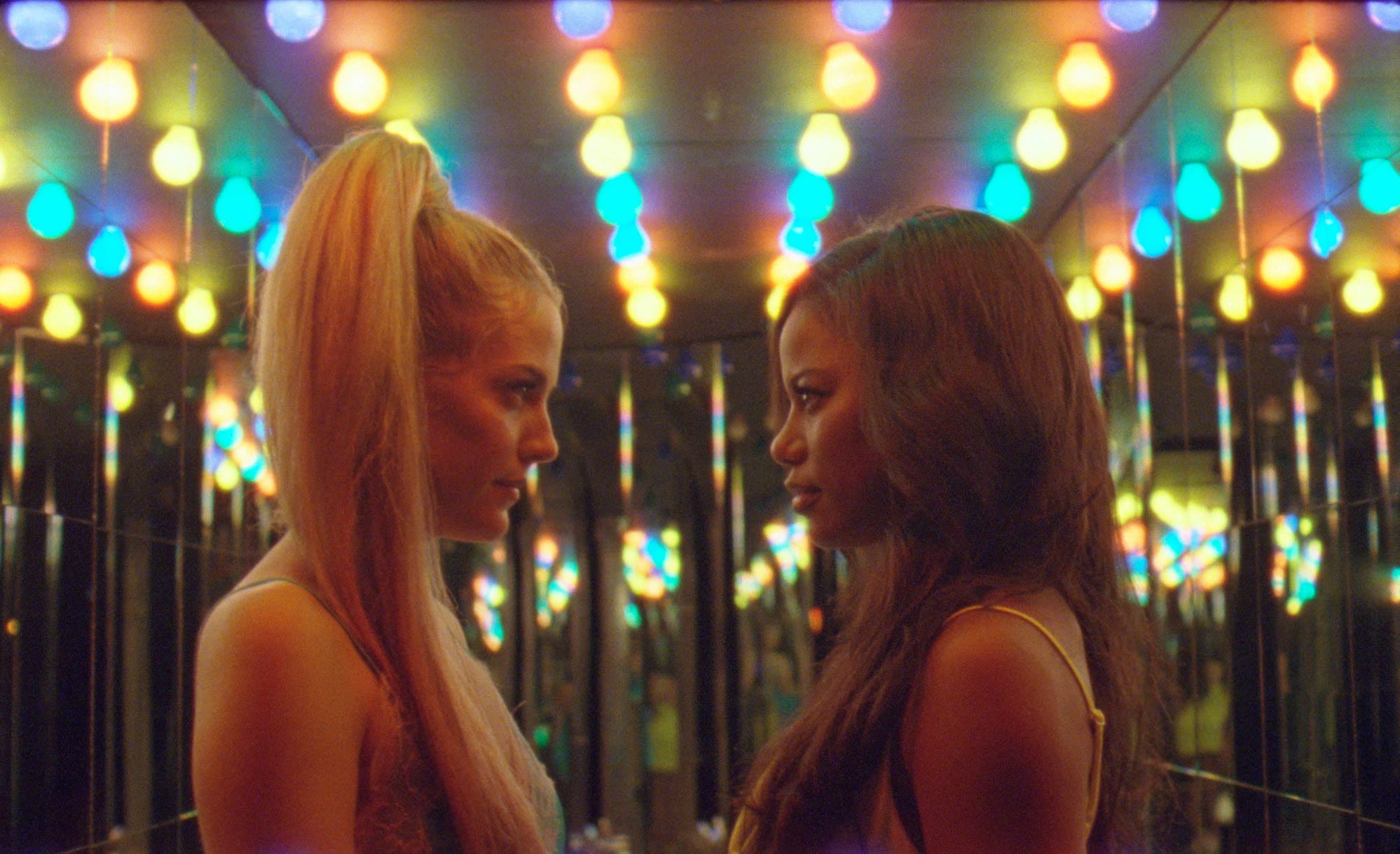

 Why you can trust Xtra
Why you can trust Xtra


